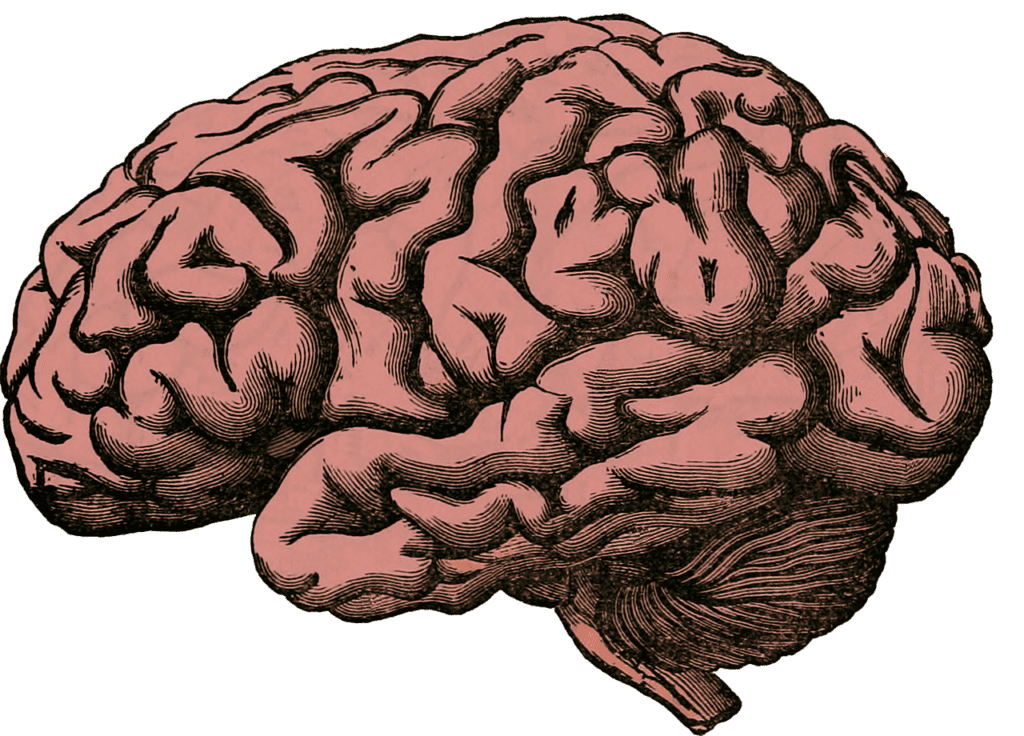Your heart is racing.
Your breath is short.
Your hands are sweaty.
Your muscles are tense.
Your stomach is weak.
You know the drill.
You. Are. STRESSED. The. F*ck. Out.
But why??? Why do we experience these terrible sensations when we’re stressed or anxious?
There’s actually a very logical explanation.
And knowing what is happening and why will truly help how you feel and respond to stressful situations.
Stress [aka fear] is a normal response. Essential even.
It’s the reason you’re here today. Your ancestors who developed a quick stress response were the one’s who survived the harsh existence of life before modern healthcare, access to healthy foods and Netflix.
And here’s where the stress response comes in handy.
You’re walking along a path, hear a rustle, and before you even have a chance to ask yourself “what was that?” your brain and body respond in micro seconds.
You either run away, prepare to fight, or freeze and stay perfectly still like a T-Rex is loose in Jurassic Park (get it, they can only see you if you move — too nerdy?). If that was a snake you heard, your immediate response greatly improved your chances of survival.
If you didn’t have this automatic response and relied on your cortex (the thinking part of your brain) to kick in, analyze all the information coming from your senses, match that up with your memory of similar situations and stored information, and then come to a conclusion — you be dead. Like, dead dead.


What’s actually happening in those micro seconds.
In the blink of an eye, the sound that you heard hits your amygdala. This little guy in your brain triggers your Fight or Flight mode.
You have two main modes: Fight or Flight (that’s your sympathetic nervous system) and Rest and Digest (that’s your parasympathetic nervous system). Only one can be on at a time.
Your amygdala just flipped the switch the Fight or Flight ON.
This triggers a whole series of events (still in the timespan of the initial eye blinking). A host of chemicals are told to course through your body causing several things to occur, and with good reason.
- Your heart starts racing sending much needed oxygen and sugar to your muscles and brain.
- Your blood and energy are sent to your big muscle groups so you can run or fight.
- Your non-essential systems like digestion, immune and reproductive systems are shut down to save energy.
- Your breath gets shorter taking small quick breaths so you can take in more oxygen.
- Your sight and hearing become sharper so you can better take in your surroundings.
OK, but I’m not in danger of a snake attack right now, so why do I feel this way?
For thousands and thousands of years, this essential evolutionary response was reinforced and passed on generation to generation.
But in the past two-ish centuries our world started to change drastically – exponentially advancing in science and medicine thereby decreasing the natural perils of our loving mother Earth for those of us living in modern society.
Our stress response is still crucial to our survival – you may need to jump out of the way of a bus hurtling down the street – but we need to use it much less frequently than our brave ancestors did.
The problem is that our brains – as smart as they are – they can be kind of dumb.
You see, they don’t know the difference between real life threatening stress and non life threatening stress.
Our brains and bodies will react the same way if a tiger is crouching and staring you down as it would if you were worried that no one would talk to you at the party next Friday.
Or if you are getting ready to speak in front of an audience. Or your girlfriend says “we need to talk”. Or you’re getting ready to hit the SEND button of an email to your boss.
None of these put your life at jeopardy. But you still feel all the same uncomfortable sensations as if you were needing to fight or flee in order to save your skin.
Stress won’t kill you, but it could kill you.
So those feelings of stress – tight chest, short breath, tension, queasiness or irritable bowls – they suck donkey b*lls.
But they won’t kill you. They will pass. The whole cycle is complete in about 20 minutes.
But if stress and anxiety are chronic, if you’re triggering your stress response often over a long period of time, it will start to take it’s toll on your body.
Remember earlier when I mentioned non-essential systems like your digestion, immune and reproductive systems get turned offline when your stress response is ON?
This is why we end up creating bigger health issues from chronic stress and anxiety like:
- Low libido
- Sexual disfunction
- Difficulty conceiving
- GERD
- IBS
- Diabetes
- Immune deficiency
(this isn’t even the full list, mind you!)
And when the stress response kicks on often – those systems that get engaged also start to take a hit like our heart which can lead to poor heart health and our adrenal gland which could lead to adrenal fatigue. The increased blood pressure and increased sensitivity to sight and sound can lead to tension headaches and migraines.
Sucks, right?
So how can knowing all this help when I’m feeling anxious and stressed?
There are several things you can do when you feel like this. You can reframe the situation. You can do breathing exercises. You can meditate. You can problem solve. You can exercise. The list goes on.
This knowledge is one more tool to add to your stress and anxiety relief toolbox.
You can remind yourself: It’s not me, it’s my brain.
When we feel these sensations, we tend to identify with them and get consumed by them. We focus on how they feel and what they mean. We fight the sensations which makes it even worse.
Taking a moment to mindfully experience this response can greatly reduce the intensity of the experience.
Sit in a relaxed position.
Take a deep breath.
For the next few moments, mindfully list your sensations. My heart is racing. My muscles are tense. etc.
To do this mindfully is to do so without judgement. Which means to not label these sensations as bad or unwanted. They just are.
Think to yourself, this is my fight or flight mode engaged.
It sent chemicals to tell my body to do these things.
It’s not me, it’s my brain.
This feeling will go away.
I am ok.
And this is a great time to move into another tool from your tool box by examining the thought that lead to the stress response.
Where to go from here:
- Work with me 1:1: For leaders and parents feeling lost trying to grow and heal on their own, ready for a guide on their journey out of anxiety into the happiest, most Zen-Badass version of yourself from the boardroom to the family room.
- 21 Day Meditation-in-Action emotional transformation (now only $37). In as few as 4 minutes a day, learn how to retrain your mind for resilience, peace and focus.
- Free Training – Learn the 4 Shifts to Ease Anxiety and Find Your Inner Zen-Badass: Access the free mini-but-mighty Graceful Resilience® training to learn the skills to become calm, confident and in control over your emotions so your career and relationships thrive.
Source https://www.health.harvard.edu/staying-healthy/understanding-the-stress-response






Tamara Otter
March 6, 2019 10:06 pmThis is just amazing stuff! My daughter has fought anxiety and depression since she was 12 I can’t wait for her to read this!
Sandy Woznicki
March 19, 2019 1:26 pmHi Tamara, I’m so happy to hear it! It can be really helpful to demystify the sensations we have when we’re experiencing anxiety. Without knowing what’s going on, the physical sensations can be just one more source of anxiety. They were for me, even caused panic attacks because I didn’t know what was going on. I hope this helps your daughter. Cheers! Sandy